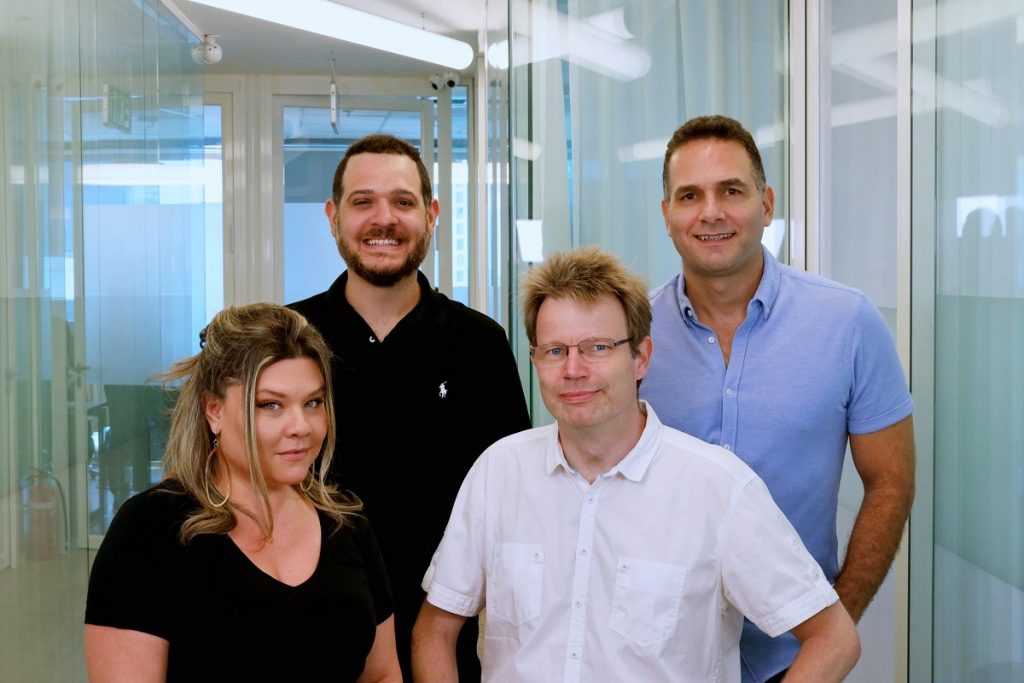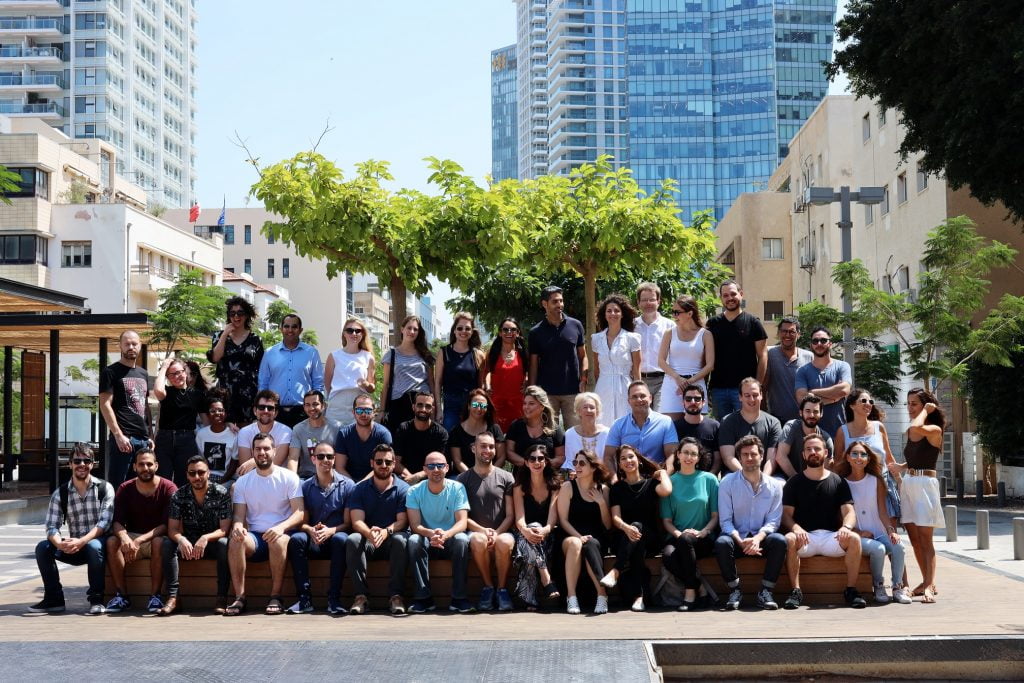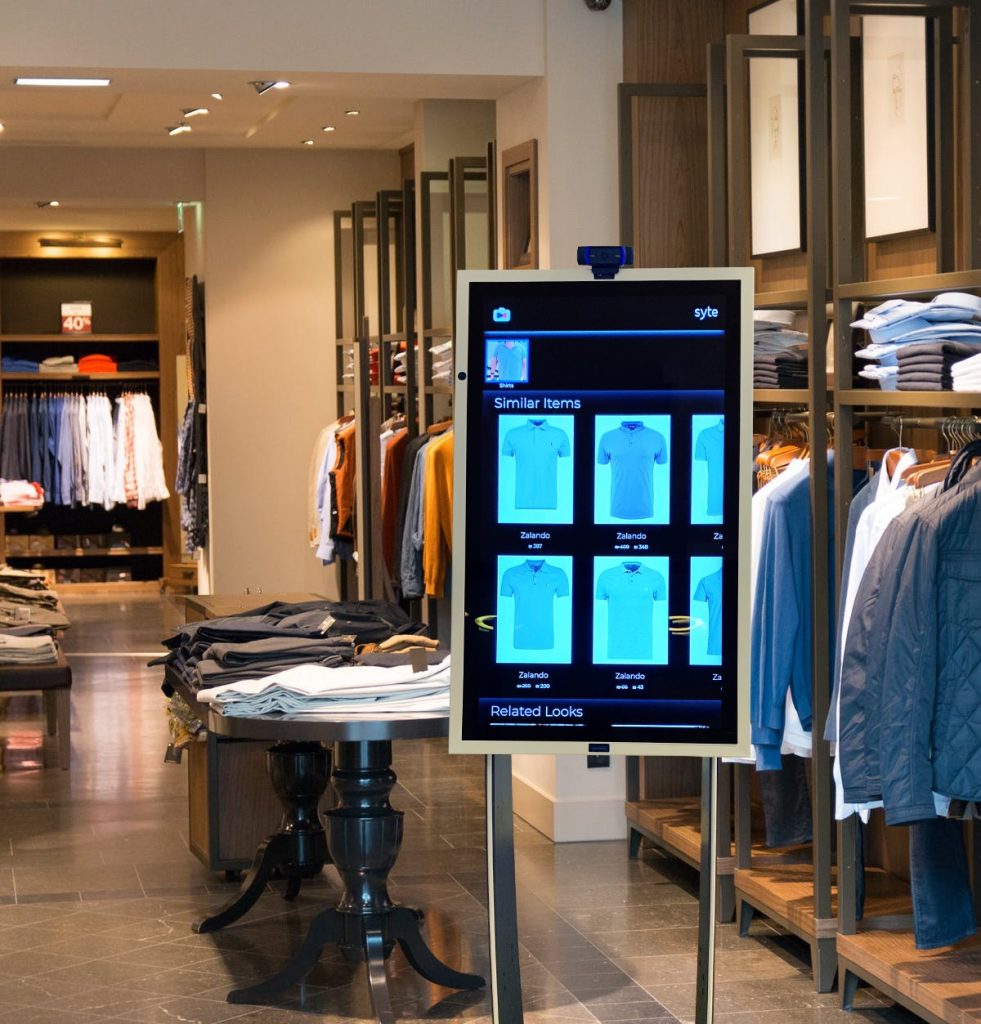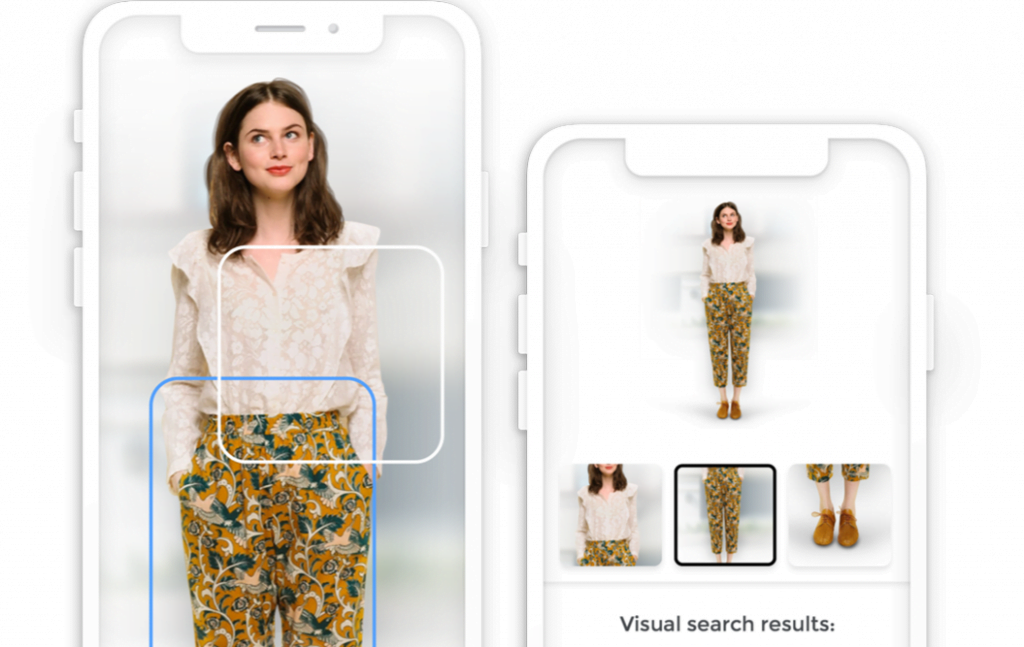Lihi Pinto Fryman was an investment banker in London five years ago when she was browsing through a magazine, came across a red dress she liked and decided she wanted to buy it. Not finding details on the garment, she later asked her husband Ofer Fryman, then an account executive with a background in tech, how it could be that in 2014, no one had yet to invent a way to for people to spot a look or style and instantly find details on it.
This spurred a decision by the two to create a company that could do just that. They came together with Pinto Fryman’s brother Idan Pinto, then a senior accountant at Ernst & Young, and eventually cold-emailed German nuclear physicist and machine learning expert Dr. Helge Voss, who was so intrigued by the idea he visited them in London (and now commutes back and forth between Geneva, Switzerland, and Tel Aviv.)

The four founders make up Syte, the visual AI tech company that is building a “bridge between physics, machine learning, and style” to power visual searches for the largest e-commerce companies, has seen “super hyper-growth” since it went on the market only 18 months ago.
SEE ALSO: Israeli Entrepreneurs Launch First Retail Tech Hub With eBay As Key Partner
The company, which now works with massive retailers such as US department store chain Kohl’s, UK digital retailer Argos, and online luxury fashion retail platform Farfetch, just nabbed $21.5 million in a Series B funding round. The round was led by Israeli venture capital firm Viola Ventures, with participation from Storm Ventures, Commerce Ventures, Axess Ventures, and Remagine Ventures.
The latest funding brings the company’s total capital raised to date to $32 million, including an $8 million Series A round in 2017.
“We have a vision to transform product discovery, and thus the eCommerce experience, for both retailers and consumers.” said Ofer Fryman in a statement announcing the Series B. “That vision is what has led us since we founded Syte, and it is what continues to lead us as we enter this stage of hyper-growth. For us, the validation of our technology and product development has come from our clients, who have selected Syte to help them stay competitive in the fast-evolving retail industry.”

Fryman says the company will expand its product offering to support clients, which Pinto Fryman confirms means they will expand the team and add 70 new employees to their Tel Aviv offices on Rothschild Boulevard in the next two months. The company opened a New York office this past July and will also establish an office in San Francisco later this year.
Syte’s hyper-growth also comes in the form of key partnerships. One of them, a collaboration between the Israeli startup and the luxe fashion platform Farfetch, won the companies their first-ever Glossy Award Europe for “Best Brand Collaboration” and “Best Product Launch Campaign” in July. The companies won for the in-app “See it, Snap, Shop it” feature created jointly in December 2018. The feature, powered by Syte’s visual AI tech, allows customers to take a photo or a screenshot of an outfit inspiration and shop visually similar options available in Farfetch inventory. The Glossy Awards Europe recognize the companies transforming the European fashion and beauty industries.
Another buzzed-about cooperation is the one between Syte and the Kim Kardashian-backed app Screenshop, a fashion app that is produced by startup developer Craze, which claims to be the first mobile platform to convert screenshots on your phone into a digital fashion store. The app’s visual search is actually powered by Syte.M
Making images shoppable
Syte spent about three years in stealth mode developing its tech before its debut. “We wanted to make sure once we launched, our customers would be blown away,” Pinto Fryman tells NoCamels.
The startup wanted to avoid mishaps and make sure its algorithms were as accurate as possible.
While there are a number of image search tools currently on the market, maybe of them can fall short. “If you are looking for a burgundy velvet dress and what you get is a top, you’re not going to be happy,” she explains.
Sign up for our free weekly newsletter
SubscribeMaking images shoppable online is the essence of Syte’s tech and it’s what customers are clamoring for.
“I read somewhere that millenials are on Instagram for something like 4 to 6 hours a day. They are exposed to thousands of images. Our mission is to help use that inspiration and connect it with the retailer’s catalog,” Pinto Fryman tells NoCamels.
“We are a B2B enterprise connecting to the retailer,” she adds,” Our end-user doesn’t need to know we are there but they can use our tech to make their experience better.”
One of the company’s solutions, a camera search, allows shoppers to take a picture of a product that inspires them and search for all similar products within a fashion retailer’s site. Customers include Marks & Spencer, boohoo, and River Island.
Another solution is a product recommendation engine for retailers’ online shops. A third is deep tagging services, which provide detailed and accurate product tagging for every item in a retailer’s catalog.
Pinto Fryman agrees that much of Syte’s objective is to make images shoppable online, but that it goes beyond this concept to bring image searching to physical brick and mortar shops by using the same technology.

Through this tech – which takes the image, breaks it down into components and finds similar looks – Syte has developed two omnichannel in-store solutions. The first, an in-store stylist/app, offers product discovery in-house, allowing the customer to upload an image of a particular item they are searching for, browse a feed of brand influencers for style insights, and shop a complete fashion or home look. The second is an in-store smart mirror that enhances the store experience by setting up large interactive screens that customers can use to find similar products.
SEE ALSO: Five Israeli Companies Changing The Face Of International Fashion Tech
While Pinto Fryman declines go into details, she says at least one major clothing brand has implemented these in-store features.
The future of visual shopping
The feedback from the market is clear, says Ronen Nir, general partner at Viola Ventures, referring to Viola’s investment in Syte, “Rarely do we find companies that have managed to solve a technological problem that tech giants have been working for years to solve without success.”
The industry is unpredictable, yet constantly evolving, Pinto Fryman adds. “In our industry, it’s really hard to predict where we will be in five years, or even three years. I strongly believe if retailers adapt visual AI they will succeed.”
Related posts

Editors’ & Readers’ Choice: 10 Favorite NoCamels Articles

Forward Facing: What Does The Future Hold For Israeli High-Tech?

Impact Innovation: Israeli Startups That Could Shape Our Future




Facebook comments